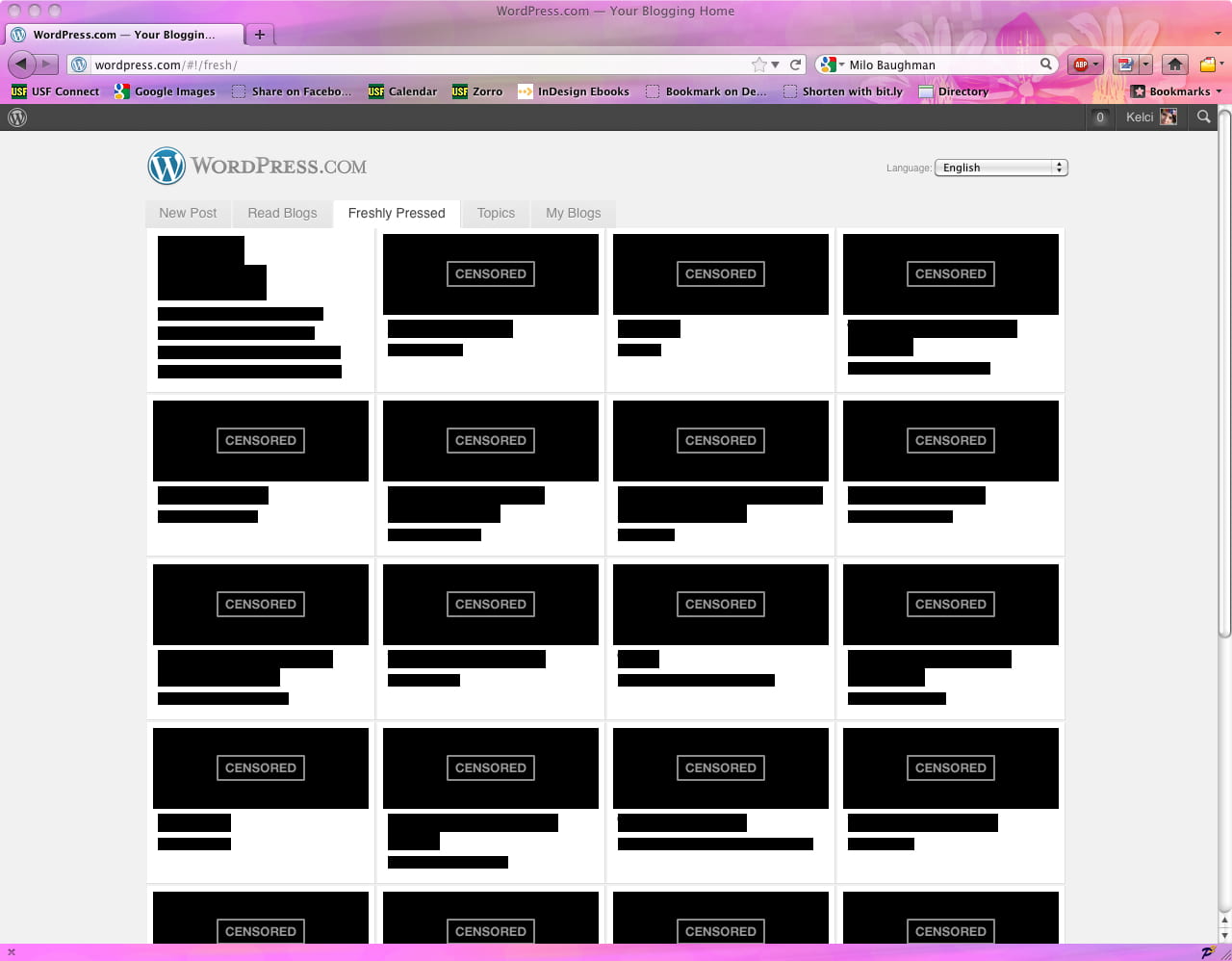When I logged into WordPress to edit a blog post this morning, I encountered the following screen:
 What’s up with that? Turns out WordPress, along with sites such as Twitter and most notably Wikipedia, are raising awareness of pending legislation in the House and the Senate that could cause censorship of the Internet. The original aim of the bills, abbreviated as SOPA and PIPA [click to access the text of the bills], was to stop piracy of movies and music online, but if passed in their current form, the bills could be invoked to shut down any Web site without due process.
What’s up with that? Turns out WordPress, along with sites such as Twitter and most notably Wikipedia, are raising awareness of pending legislation in the House and the Senate that could cause censorship of the Internet. The original aim of the bills, abbreviated as SOPA and PIPA [click to access the text of the bills], was to stop piracy of movies and music online, but if passed in their current form, the bills could be invoked to shut down any Web site without due process.
Indeed, as librarians and informational professionals, we do not condone censorship. However, being opposed to these bills cannot be summed up as being opposed to censorship — the bills are complex pieces of legislation. We here in Gleeson Library encourage you to research the issue and scrutinize your sources. Does the source have something invested in winning or losing? Does the source have a history of slanting the news? Does the article seem sensationalist or over the top? Does it get you more mad than informed? I found the FAQ on Wikipedia explaining the black out to be very informative and nonbiased, in line with what I perceive as the mission and values of Wikipedia as an organization.
A colleague of mine, Jean Hewlett, had two other great suggestions for nonbiased facts:
[A] good explanation is by Sal Kahn of KahnAcademy:
This one sounds kind of like your high school civics teacher
explaining it at great length.
http://www.youtube.com/watch?v=tzqMoOk9NWcFor more detailed legal analysis, here’s a page of links to articles by the staff of the Berkman Center at Harvard:
http://cyber.law.harvard.edu/node/7327
The question still remains: What are you going to do while Wikipedia is blacked out today? How about using some of these real academic encyclopedias the library subscribes to? We got lots of them!

